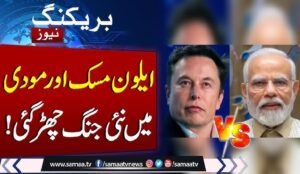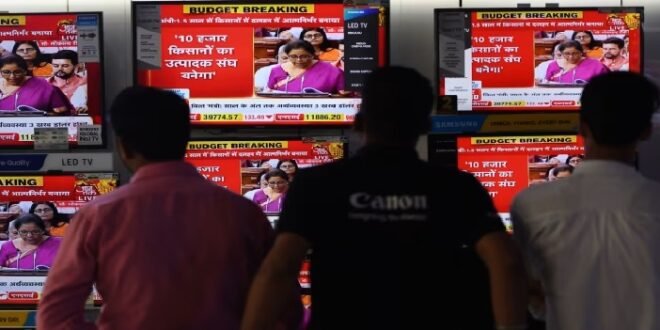08-08-2025
NEW DELHI/ BENGALURU/NEW DELHI: In January, an old post on Elon Musk’s social media platform, X, became a concern for police in the Indian city of Satara. Written in 2023, the short message from an account with a few hundred followers described a senior ruling-party politician as “useless”.
 “This post and content are likely to create serious communal tension,” inspector Jitendra Shahane wrote in a content-removal notice marked “CONFIDENTIAL” and addressed to X.
“This post and content are likely to create serious communal tension,” inspector Jitendra Shahane wrote in a content-removal notice marked “CONFIDENTIAL” and addressed to X.
The post, which remains online, is among hundreds cited by X in a lawsuit it filed in March against India’s government, challenging a sweeping crackdown on social media content by Prime Minister Narendra Modi’s administration.
Since 2023, India has ramped up efforts to police the internet by allowing many more officials to file takedown orders and to submit them directly to tech firms through a government website launched in October.
X argues India’s actions are illegal and unconstitutional, and that they trample free speech by empowering scores of government agencies and thousands of police to suppress legitimate criticism of public officials.
India contends in court documents that its approach tackles a proliferation of unlawful content and ensures accountability online. It says many tech companies, including Meta, opens new tab and Alphabet’s, opens new tab Google, support its actions. Both companies declined to comment for this story.
Musk, who calls himself a free-speech absolutist, has clashed with authorities in the United States, Brazil, Australia and elsewhere over compliance and takedown demands. But as regulators globally weigh free-speech protections against concerns about harmful content, Musk’s case against Modi’s government in the Karnataka High Court targets the entire basis for tightened internet censorship in India, one of X’s biggest user bases. Musk said in 2023 that the South Asian nation had “more promise than any large country in the world” and that Modi had pushed him to invest there.
 This account of the behind-the-scenes battle between the world’s richest person and authorities in the world’s most populous country is based on a media review of 2,500 pages of non-public legal filings and interviews with seven police officers involved in content-removal requests. It reveals the workings of a takedown system shrouded in secrecy, some Indian officials’ ire over “illegal” material on X, and the broad spectrum of content that police and other agencies have sought to censor.
This account of the behind-the-scenes battle between the world’s richest person and authorities in the world’s most populous country is based on a media review of 2,500 pages of non-public legal filings and interviews with seven police officers involved in content-removal requests. It reveals the workings of a takedown system shrouded in secrecy, some Indian officials’ ire over “illegal” material on X, and the broad spectrum of content that police and other agencies have sought to censor.
While the takedown orders include many that sought to counter misinformation, they also encompass directives by Modi’s administration to remove news about a deadly stampede, and demands from state police to scrub cartoons that depicted the prime minister in an unfavorable light or mocked local politicians, the filings show.
X didn’t respond to Reuters questions about the case, while India’s IT ministry declined to comment because the matter was before the court. Modi’s office and his home ministry didn’t respond to questions.
There have been no immediate signs of souring personal relations between Musk and Modi, who have enjoyed a warm public rapport. But the showdown comes as the South African-born entrepreneur, whose business empire includes EV maker Tesla (TSLA.O), opens new tab and satellite internet provider Starlink, gears up to expand both ventures in India.
Even supporters of Modi’s Bharatiya Janata Party (BJP) have faced scrutiny of their online musings from police officials newly empowered by the IT ministry to target social media activity. (Int’l Monitoring Desk)
 Pressmediaofindia
Pressmediaofindia




